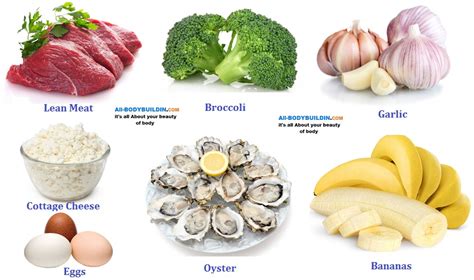How to optimize natural testosterone for peak male performance & vitality?

Testosterone, the primary male sex hormone, plays a pivotal role in far more than just libido and muscle mass. Optimal testosterone levels are crucial for energy, mood regulation, cognitive function, bone density, and overall male vitality. In an era where many men face declining testosterone, understanding how to naturally optimize this vital hormone is key to unlocking peak performance and well-being without resorting to synthetic solutions.
The Foundations of Testosterone Production: Diet and Nutrition
What you eat directly impacts your body’s ability to produce hormones. A balanced diet rich in specific nutrients is non-negotiable for healthy testosterone levels. Focus on a macronutrient balance that supports hormone synthesis: adequate protein for building blocks, healthy fats (monounsaturated and saturated) for cholesterol—the precursor to testosterone—and complex carbohydrates for energy and adrenal health. Limit processed foods, excessive sugar, and unhealthy trans fats which can disrupt hormonal balance.
Key Nutrients for Testosterone:
- Zinc: Essential for testosterone production; found in oysters, red meat, and pumpkin seeds.
- Vitamin D: More a hormone than a vitamin, crucial for numerous bodily functions including testosterone synthesis; best obtained from sun exposure and fatty fish.
- Magnesium: Supports free testosterone levels; present in leafy greens, nuts, and legumes.
- Healthy Fats: Avocados, olive oil, nuts, and fatty fish provide necessary precursors.

Strategic Exercise for Hormonal Health
Physical activity, particularly certain types, is a powerful natural testosterone booster. However, not all exercise is created equal. High-intensity resistance training and compound movements (squats, deadlifts, bench press) are particularly effective at stimulating testosterone release. Aim for 3-4 sessions per week, focusing on progressive overload. Short bursts of high-intensity interval training (HIIT) can also be beneficial. Conversely, excessive chronic cardio without adequate recovery can sometimes be counterproductive, potentially increasing cortisol (the stress hormone) which can suppress testosterone.
Ensure your exercise routine includes:
- Heavy compound lifts (squats, deadlifts, presses)
- Short, intense workouts
- Adequate recovery periods

The Critical Role of Quality Sleep
Sleep is often overlooked but is arguably one of the most vital factors for hormone regulation, including testosterone. Most of your daily testosterone production occurs during sleep, particularly during the REM cycles. Chronic sleep deprivation (less than 7-9 hours per night) can significantly lower testosterone levels. Studies have shown that even a week of reduced sleep can dramatically impact hormone profiles.
Tips for Optimizing Sleep:
- Maintain a consistent sleep schedule.
- Create a cool, dark, quiet sleep environment.
- Avoid screens emitting blue light an hour before bed.
- Limit caffeine and alcohol, especially in the evening.

Managing Stress: The Silent Testosterone Killer
In today’s fast-paced world, chronic stress is endemic, and its impact on testosterone cannot be overstated. When you’re stressed, your body releases cortisol. High cortisol levels have an inverse relationship with testosterone; as one goes up, the other tends to go down. This is part of the body’s survival mechanism, but chronic activation can be detrimental.
Implementing stress-reduction techniques into your daily routine is crucial:
- Meditation and mindfulness practices.
- Deep breathing exercises.
- Spending time in nature.
- Engaging in hobbies or activities you enjoy.
- Ensuring social connection.

Additional Lifestyle Factors and Considerations
Beyond the core pillars, several other lifestyle choices can influence your testosterone levels:
- Maintain a Healthy Weight: Obesity, particularly abdominal fat, can convert testosterone into estrogen via the enzyme aromatase. Losing excess weight can significantly improve testosterone levels.
- Limit Alcohol Consumption: Excessive alcohol intake can disrupt hormonal balance and damage Leydig cells in the testes, which produce testosterone.
- Avoid Endocrine Disruptors: Exposure to certain chemicals found in plastics (BPA, phthalates), pesticides, and cosmetics can mimic hormones and interfere with natural testosterone production. Choose organic foods and use glass/stainless steel containers where possible.

Conclusion
Optimizing natural testosterone is not about quick fixes but rather a holistic commitment to a healthy lifestyle. By consistently focusing on a nutrient-dense diet, effective exercise, sufficient restorative sleep, and proactive stress management, men can significantly boost their natural testosterone production. This integrated approach not only enhances physical performance and vitality but also contributes to improved mood, cognitive function, and overall long-term health, empowering men to truly thrive.









